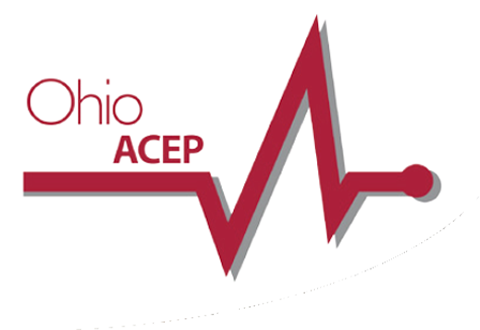Advocacy Updates
What We Are Watching at the Ohio Statehouse
Ohio ACEP is following a number of legislative issues related to the practice of emergency care in the state of Ohio.
CMS recently released data regarding emergency department wait times. You can read coverage of this here and more about the study here. Ohio’s average wait time was reported as 157 minutes.
Rural Health Updates
At the end of 2025, it was announced that Ohio was awarded a little over $200 million from CMS through the Rural Health Transformation Program. Members of the legislature have formed a Rural Hospital Caucus with the intent of encouraging investments on vulnerable hospitals in rural parts of the state. In Governor DeWine’s announcement, the following priorities were highlighted: expanding access to care in rural communities, strengthening the rural health workforce, modernizing rural facilities and technology, and supporting innovative models that bring high-quality, dependable care closer to home. There could be scope of practice expansions considered as part of this initiative, namely for pharmacists. Ohio ACEP will continue to watch the rollout of these programs closely.
Traffic Safety
Governor DeWine’s office recently shared statistics that traffic fatalities in Ohio have decline for the fourth year in a row. According to preliminary data, traffic related deaths dropped approximately 3%, a difference of 32 lives. According to the release: Failure to wear a seatbelt remains a major factor in traffic deaths. In crashes involving vehicles outfitted with seatbelts, nearly 62% of individuals killed from 2021 to 2025 chose not to wear a safety belt, equating to nearly 2,500 people.
In Ohio, failure to wear a seat belt is not a primary traffic offense. Governor DeWine and Lt. Governor Tressel recently released a new traffic campaign regarding seat belts. You can watch that here.
“Wearing a seatbelt every time you get in the car isn't just about protecting yourself; it's about protecting your loved ones,” said Governor DeWine. “Too many families in Ohio have been forever changed by crashes involving those not wearing seatbelts. This campaign reminds Ohioans that buckling up improves your chances of making it back to your loved ones at the end of the day.”
Pharmacists’ Authority Legislation Introduced
Representatives Tim Barhorst and Jennifer Gross have introduced a bill to allow pharmacist to prescribe drugs among other things. House Bill 629 will allow pharmacist, under protocols developed by a physicians, APN or PAs, to treat patients who are 13 years or older for certain conditions such as the flu, UTIs, and skin conditions. They would be able to order and interpret labs and diagnostic tests, as well as prescribe medications for these conditions.
The provider who develops the protocol must be within a 45-mile radius of the pharmacy. The protocol would include what categories of patients and conditions the pharmacist is authorized to treat and include requirements regarding notifying the patients' primary care provider of treatments provided by the pharmacist.
The bill also provides that a pharmacist is reimbursed for these services.
Senator Mark Romanchuk has also introduced legislation regarding pharmacist practice authority. Senate Bill 230 would allow pharmacist to test and treat for certain respiratory conditions like influenza and COVID. They would also be able to initiate drug treatments for these conditions.
ACEP Continues to Oppose APN Independent Practice Legislation
There are three different bills pending in the Ohio legislature that would give advanced practice nurses (APNs) a path to independent practice. Senate Bill 258, House Bill 449, and House Bill 508. Each bill eliminates the requirement for APNs to have a collaboration agreement after they complete a certain number of clinical hours (2,000 or 5,000 hours, depending on the bill). They also allow APNs to be a “collaborating provider” to other APNs if they have completed their clinical hours and are practicing independently.
HB 508 is garnering the most attention at the moment as it was referred to a committee chaired by one of the bill sponsors. At the proponent hearing, supporters included several APRNs, the Ohio Council of Behavioral Health & Family Services Providers, Americans for Prosperity, Trinity Health Systems, and others.
Ohio ACEP President Christina Campana testified in opposition to the bill on November 18th, along with other physician groups. Dr. Campana presented data to support the importance of physician-led healthcare, especially in the emergency department. Ohio ACEP has shared a call to action with the membership, and we encourage you to contact your State Representative in opposition to these bills.
Want to Learn More?
If you’re interested in viewing the status of all of the bills Ohio ACEP is tracking, you can find that here.


